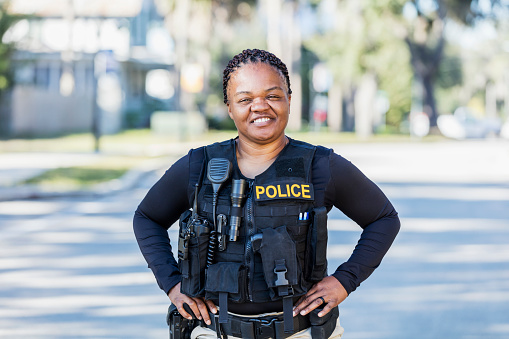Police officers devote themselves to protecting and defending the people and maintaining law and order. In the course of their jobs, officers make many sacrifices and expose themselves to several risks, so it's not surprising that the role also comes with many benefits and forms of compensation. The role affords them respect and a certain prestige. The knowledge of their role in making their communities safer is a rewarding feeling. There are overt examples like being first responders on emergency scenes, rescuing car crash victims, and defending people and property at crime scenes.
Then the seemingly minor things like comforting abuse survivors who make reports or simply ensuring motorists keep to the speed limit to prevent accidents. Officers come across vulnerable people like addicts, thieves, and abusers and have the opportunity to influence them positively. They enjoy the gratification that comes from knowing the impact of their contribution to society.
The police force constantly has to rise to the occasion with the new challenges they face almost daily. While it's a demanding career, it's rarely a monotonous one. You are constantly brainstorming how to solve or prevent problems, and the job allows you to meet several different individuals; the various kinds of professionals you work with and civilians you come across.
As a member of the police force, you develop a drive to strive to improve yourself due to the competitive nature of the environment. To move up the ranks, you need to meet up with the standards of performance and physical fitness.
Police officers earn competitive salaries and benefit from insurance coverage and health and retirement packages you are unlikely to find in private establishments. In 2019, the Bureau of Labor Statistics reported that police officers receive a median wage of $65,170 every year. Officers receive pay raises often as their years of service increase.
Besides the regular salary, there can be additional payments like overtime, equipment allowances, yearly uniform allowances, and pay for working nights and weekends. In some cases, extra degrees, special skills, or training can entitle you to bonuses. Jobs in the police force are available all around the country, and with the right skills and expertise, officers have ample room for career advancement.
The option of early retirement is another benefit many police officers enjoy. You can decide to retire with your pension after 20 to 25 years of service and step back to enjoy time with your family or even go into an entirely different career at just 45 or 50.
The United States runs an initiative called the public Safety Officers' Benefits (PSOB) Program. The state's Department of Justice assists officers or their surviving loved ones in cases where they are killed or disabled while on official assignments. The program offers higher education and disability or death benefits to the survivors.
The PSOB program aims to support these officers, who devote themselves to serving their communities despite all kinds of risks, and take care of their families.
Police officers work side by side in life or death situations, hence the solid and unique bond that develops. The support system officers find among their colleagues transcends just the workplace or the line of duty.





